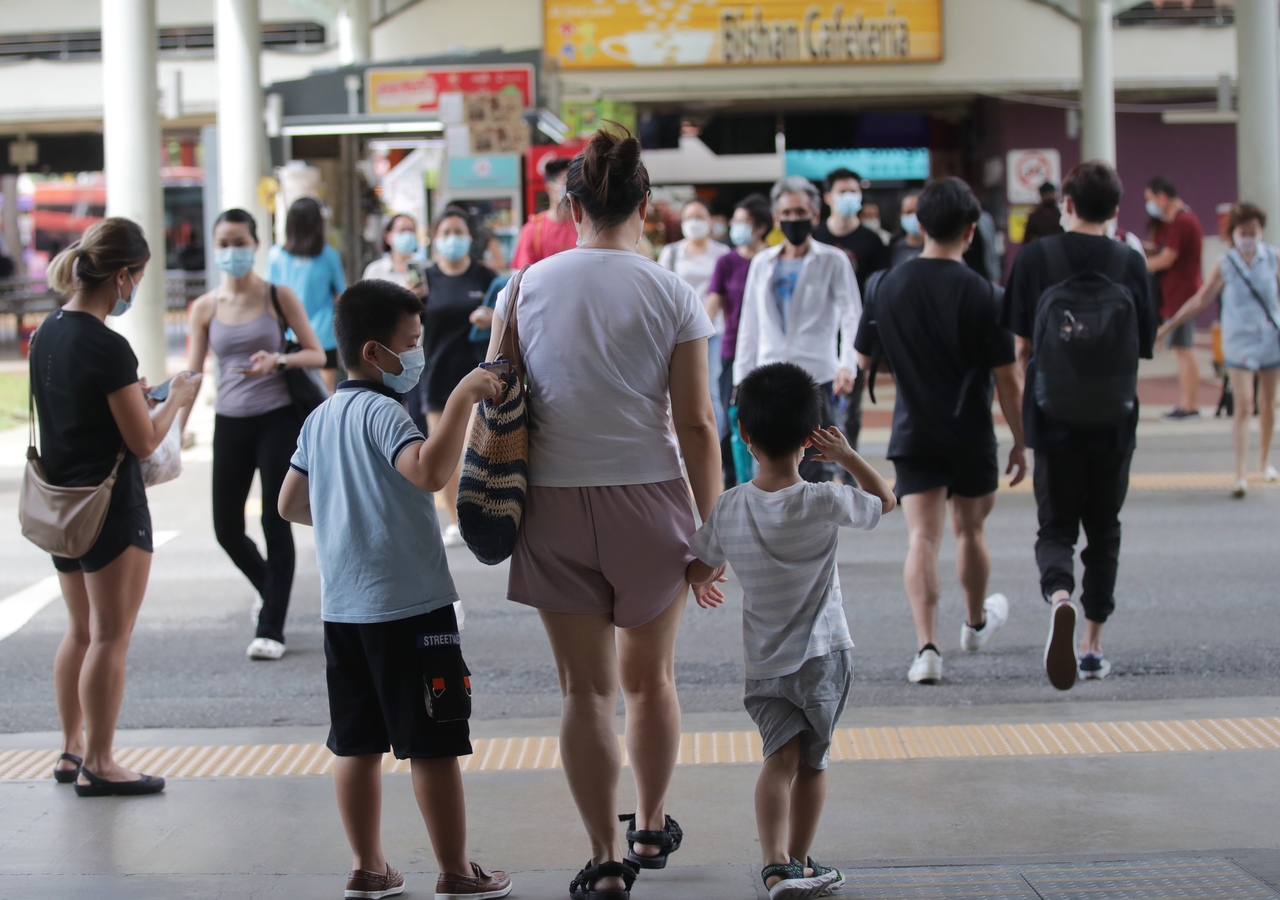Protecting children from mistakes and failures will not build resilience, says expert
Sign up now: Get ST's newsletters delivered to your inbox

Parents should maintain trust with their children and refer them to other resources like counsellors and friends.
ST PHOTO: GIN TAY
SINGAPORE - Protecting children from mistakes and failures does not make them more resilient, said mindfulness expert Angie Chew.
Instead, when children make mistakes or fall short of expectations, parents should ask them how they can learn from this experience and how they can avoid similar situations in future, said Ms Chew, chief executive of mental wellness charity Brahm Centre.
Ms Chew, who is also an adjunct associate professor of mindfulness at the National University of Singapore, was speaking at an askST @ NLB panel discussion titled Mental Health - How To Build Resilience In Young People.
The virtual event, shared on the Straits Times' Facebook page on Friday (July 30), was hosted by ST senior health correspondent Joyce Teo.
Resilience is commonly understood to be the ability to recover from difficulties and changes in life. While stress and challenging life situations cannot be avoided, people can develop resilience to cope effectively with them.
Ms Chew said it is important for parents to be a model of resilience for their children. She added that if parents are fearful of things like making mistakes and being the subject of gossip, then children will not learn to become more resilient.
She said: "Because what they're learning from us is the kiasi and kiasu attitude, and that is not helpful."
Kiasi means afraid to die and kiasu means afraid to lose in Hokkien.
Ms Chew said parents should praise and encourage their children often because it motivates children to do better and gives them confidence to face the world.
It is not true, she added, that children slack off or become complacent when they receive affirmation.
During the panel discussion, Ms Chew also touched on how people can respond to traumatic events like the death of a River Valley High School Secondary 1 student on July 19. A 16-year-old student from the school has been charged with murder and remanded for psychiatric observation.
Ms Chew said the mind is prone to creating narratives and assumptions, but it is important not to get sucked into these stories and emotions, as this can be distressing.
Instead, they should wait for the facts, avoid speculation, and focus on what can be learnt from the incident, and how to support students with mental health issues, she said.
A mindfulness practice that can help to calm the mind, Ms Chew said, involves closing the eyes, and running a finger along the outline of another finger while focusing on breathing in and out.
She said: "Once the mind is calm… whatever catastrophe in the mind no longer stays."
Ms Chew also responded to questions from ST readers.
One mother asked how she could help her son who has been diagnosed with depression and does not want other family members to know about his struggles.
Ms Chew said parents should maintain trust with their children and refer them to other resources such as counsellors and friends, as children may not want to share their mental health issues with family.
For more information and resources on this topic, use the keywords "mental health" and "depression" to search ProQuest Central at this website - a database the National Library Board subscribes to.
A myLibraryID is required to access the database. If you do not have a myLibraryID, you can go to this website and sign up for one using SingPass or identity card number or Foreign Identification Number.
AskST @ NLB is a collaboration between The Straits Times and the National Library Board. The video recording of the event and past sessions can be found at this website.

Recommended reading
The Boy Between: A mother and son's journey from a world gone grey, by Amanda Prowse and Josiah Hartley
18 Wellbeing Hacks For Students: Using psychology's secrets to survive and thrive, by Aidan Harvey-Craig
Positive Mental Health: Overcoming mental health problems, by Dr Shaun Davis and Andrew Kinder
Be Kind To Your Mind: A pocket guide to looking after your mental health, by Claire Chamberlain
Mental Health Emergencies: A Guide to recognizing and handling mental health crises, by Nick Benas and Michele Hart (electronic resource)
Mental Wealth: An essential guide to workplace mental health and wellbeing, by Emi Golding (electronic resource)


